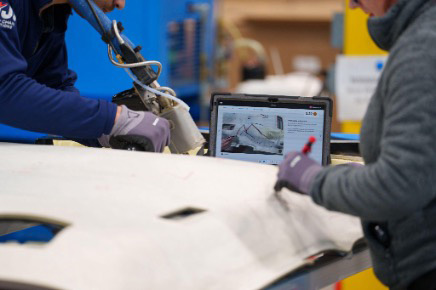Digital transformation is vital for staying competitive, but it’s challenging. Here’s a guide to help leaders navigate the journey smoothly.
by Ryan Kuhlenbeck, CEO and co-founder of Pico MES
The first step in any digital transformation journey is understanding where you currently stand. This means doing the math, even if it’s painful. Leaders must commit to collecting baseline data, even if it’s just for a week or two. This data is essential for calculating the Return on Investment (ROI) of any digital technology you’re considering. Without a clear understanding of your current losses, you can’t accurately assess the potential benefits of new technology.
It’s not enough to simply measure losses; you need to validate and understand the data. This step is crucial. Without it, any ROI calculations you make will be off, potentially leading to poor decision-making.

Once you’ve got your baseline data, it’s time to dig deeper into specific operational metrics.
Not all technologies are created equal. Some will be essential for your business, while others might offer a strategic advantage.
Next, evaluate your internal capabilities. Are you able to develop software solutions in-house, and if so, are you good at it? If the answer is no, that’s perfectly fine—just know that you’ll need to look for a vendor to support you.
When considering whether to make or buy, it’s essential to do the math. Often, it’s more cost-effective to purchase pre-existing solutions (like digital work instructions) and integrate them into your systems. However, if you have a highly customizable product mix, you might need to invest in a configuration management system tailored to your needs.
Once you have a clear understanding of your baseline issues, identify the necessary infrastructure, and assess your internal capabilities, it’s time to get started. There are generally two paths to success, depending on your team’s experience level.
Digital transformation is a journey, not a one-time event. By focusing on key metrics, choosing the right technologies, and taking a strategic, incremental approach, leaders can ensure their organizations stay competitive and resilient – making them more agile and efficient in an ever-changing digital environment.

Ryan Kuhlenbeck is the CEO and co-founder of Pico MES. His career spans a wide range of automotive manufacturing including General Motors, Tesla, and Alta Motors. He has experienced firsthand the real-world issues that the digital divide creates and has created a company dedicated to helping all factories be more efficient and profitable.
Scott Ellyson, CEO of East West Manufacturing, brings decades of global manufacturing and supply chain leadership to the conversation. In this episode, he shares practical insights on scaling operations, navigating complexity, and building resilient manufacturing networks in an increasingly connected world.